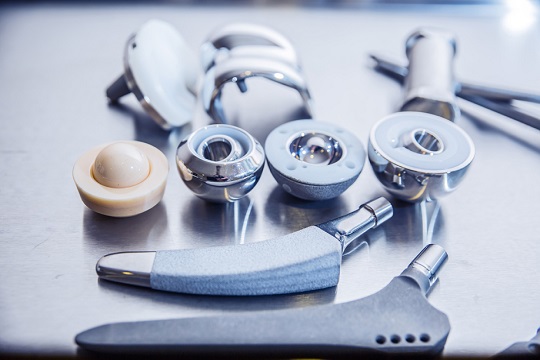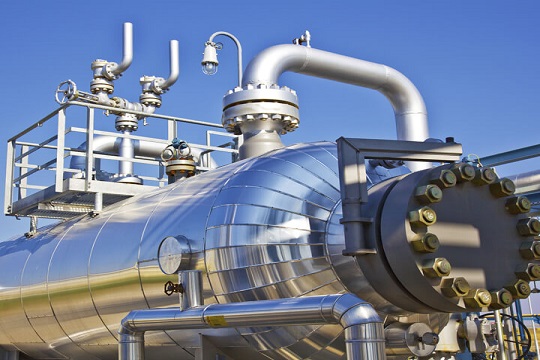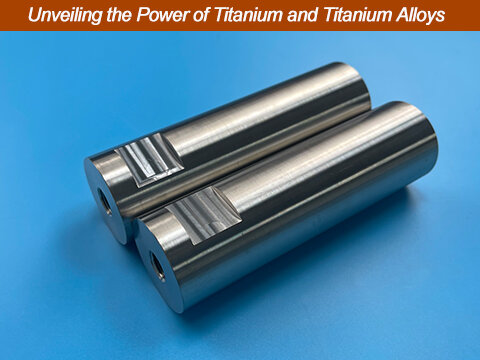Introduction to Titanium and Titanium Alloys
Titanium and its alloys are amazing materials used in many different industries. Known for their strength, light weight, and resistance to corrosion, these metals are essential in modern technology. In this blog, we will explore what titanium is, the different types of titanium alloys, their properties, and their applications.
Understanding Titanium
Definition and Properties
Titanium is a strong, lightweight metal that is found naturally in the Earth's crust. It is known for its silver color and high strength. Titanium is as strong as steel but much lighter, making it very useful in many applications.
History and Discovery
Titanium was discovered in 1791 by a clergyman named William Gregor. It wasn't until the 20th century that scientists figured out how to extract and use titanium on a large scale. Today, it is a crucial material in many industries.
Natural Occurrence and Extraction Process
Titanium is not found as a pure metal in nature. It is extracted from minerals like rutile and ilmenite. The extraction process involves separating the titanium from other elements, which is complex and expensive.
Key Properties of Titanium and Titanium Alloys
Physical Properties
Titanium is very light, with a density about 60% that of steel. It has a high melting point of 1,668°C (3,034°F), making it suitable for high-temperature applications.
Chemical Properties
One of the best features of titanium is its resistance to corrosion. It does not rust easily and can withstand harsh environments, including saltwater and chemicals.
Mechanical Properties
Titanium is incredibly strong and has a high strength-to-weight ratio. It is also flexible and can return to its original shape after bending.
Types of Titanium Alloys
Classification of Titanium Alloys
Titanium alloys are classified into three main types:
-
Alpha Alloys: These are the easiest to work with and have good strength and corrosion resistance.
-
Beta Alloys: These are stronger and more flexible but harder to work with.
-
Alpha-Beta Alloys: These combine the properties of both alpha and beta alloys and are the most commonly used.
Common Titanium Grades
Titanium alloys are also classified into different grades based on their composition and properties. Here are some of the most common grades of titanium:
Commercially Pure (CP) Titanium Grades
-
Grade 1: This is the purest form of titanium with the highest corrosion resistance and the greatest formability. It is used in chemical processing, marine, and medical applications.
-
Grade 2: Known for its good balance of strength and ductility, Grade 2 is widely used in industrial applications, including power generation and desalination plants.
-
Grade 3: This grade offers higher strength than Grades 1 and 2 but is less formable. It is used in applications where strength is more critical than ductility.
-
Grade 4: The strongest of the commercially pure grades, Grade 4 is used in aerospace, medical, and industrial applications that require high strength and corrosion resistance.
Titanium Alloys
-
Grade 5 (Ti-6Al-4V): The most commonly used titanium alloy, Grade 5 contains 6% aluminum and 4% vanadium. It offers excellent strength, light weight, and corrosion resistance, making it ideal for aerospace, medical, and industrial applications.
-
Grade 7: This alloy is similar to Grade 2 but includes a small amount of palladium, which enhances its corrosion resistance. It is used in chemical processing and other applications requiring superior corrosion resistance.
-
Grade 11: Similar to Grade 1, Grade 11 includes palladium for enhanced corrosion resistance. It is used in chemical processing and marine environments.
-
Grade 12: This alloy contains small amounts of molybdenum and nickel, which improve its strength and corrosion resistance. It is used in applications involving hot, highly corrosive environments, such as chemical processing and power generation.
Comparison of Different Types of Alloys
Each type of titanium alloy has its own advantages and disadvantages. Alpha alloys are great for their simplicity and ease of use, while beta alloys offer superior strength and flexibility. Alpha-beta alloys provide a balance of properties, making them versatile for various applications.
Applications in Various Industries
Aerospace and Aviation

Titanium is used extensively in the aerospace industry. Its light weight and high strength make it perfect for airplane parts and spacecraft. It helps improve fuel efficiency and can withstand the extreme conditions of space.
Medical and Dental

In the medical field, titanium is used for implants, such as hip replacements and dental implants. Its biocompatibility means it is not rejected by the human body and can last a long time without causing problems.
Automotive and Transportation

Titanium is used in high-performance cars for parts like exhaust systems and engine components. Its strength and light weight help improve the speed and efficiency of vehicles.
Chemical Processing

In the chemical industry, titanium's resistance to corrosion makes it ideal for equipment used to handle corrosive substances. It ensures a long lifespan and reduces maintenance costs.
Marine and Offshore

Titanium is used in marine environments for boat parts and offshore structures. Its ability to resist seawater corrosion makes it a valuable material for these applications.
Advantages and Benefits
High Strength-to-Weight Ratio
Titanium's high strength and low weight make it perfect for applications where reducing weight is crucial, such as in aerospace and automotive industries.
Excellent Corrosion Resistance
Titanium can withstand harsh environments and does not rust easily, which makes it ideal for use in marine, chemical, and medical applications.
Biocompatibility for Medical Applications
Titanium is safe to use in the human body, making it the material of choice for many medical implants.
High Temperature Resistance
Titanium can maintain its strength at high temperatures, making it suitable for applications like jet engines and industrial processes.
Challenges in Working with Titanium and Titanium Alloys
Cost Considerations
Titanium is expensive to extract and process, which can make it costly to use compared to other metals like steel or aluminum.
Machining and Fabrication Challenges
Working with titanium requires special tools and techniques because it is harder to machine and weld than other metals. This can increase production costs and time.
Availability and Supply Chain Issues
Because titanium is not as abundant as other metals, there can be supply chain issues that affect its availability and price.
Innovations and Future Trends
Recent Advancements in Titanium Technology
Researchers are constantly finding new ways to improve titanium and its alloys. Advances in production methods and alloy compositions are making titanium more affordable and versatile.
Emerging Applications
New applications for titanium are being discovered all the time. For example, titanium is now being used in 3D printing to create complex and precise parts.
Sustainability and Recycling Efforts
Efforts are being made to recycle titanium to reduce waste and lower costs. Recycling titanium helps make its use more sustainable and environmentally friendly.
Conclusion: The Value of Titanium and Titanium Alloys
Titanium and its alloys are powerful materials that offer a unique combination of strength, light weight, and corrosion resistance. Despite some challenges, their benefits make them indispensable in many industries. As technology advances, the use of titanium is expected to grow, bringing even more exciting applications in the future.
At AEM METAL, we pride ourselves on providing high-quality titanium and titanium alloys. Our products are used in a variety of industries, from aerospace to medical to chemical processing. If you have any questions or need more information, please contact us. We are here to help you find the right titanium solution for your needs.
















